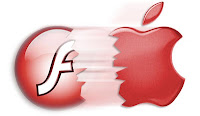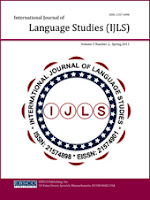Okay, I admit that this is not exactly a typical post for this blog, but with all the hype about how iPad and iPhone can revolutionise education I feel that I am justified (see a
small sample of the hype here). I have just given away my iPhone 4. I am incredibly relieved that I will no longer have to put up with the stupid way it does everything.
Give a few examples you say? Okay, then. Let's start with iTunes. First of all, why do I have to use an iTunes account at all? I do, because without it Apple does not let me start the phone I just paid much too much money for.
Then why do I have to give Apple Inc. my credit card & billing details when I just want free stuff? Imagine that you went to a "regular store" (i.e. one without an i added to the beginning for no reason) & as soon as you step inside, they take your credit card from you. As you walk around the shop, you suddenly realise that the store has taken money from your credit card. When you query them, they kindly inform you that their very special products cannot remain in your shopping trolley for more than 5 minutes without you being charged. Would you go back there again? Ever? So why do we allow Apple Inc. to treat us this way?
Next, back to iTunes. It is rubbish. It is designed to make you use it exclusively. When I try to back up my terrible photos from my phone, iTunes tries to copy all of my photos from the computer to the already full memory on the phone. The memory cannot be increased, and why would I want that anyway? Without asking me? With almost no control over where it places anything? Can't I have photos that exist independently of the rubbish images that iPhone produces? I have a VERY extensive music collection - far bigger than will fit on any Apple device and none of which I bought from iTunes. Most of the music is from my own collection of CDs. iTunes works on the principle that I have a music library that I must have bought from iTunes that 'synchs' with my phone, and so I can only have as much music as will fit on my iPhone, unless I want to copy everything that I want to transfer to the phone into a separate directory on my computer. Waste of space - waste of time.
Then there are all those pointless apps (e.g. Newsstand, Stocks, Weather, Gamecenter etc.) that I have no use for, but which take up the insufficient memory
and cannot be removed. Ever. For no reason.

Then there's the micro SIM card. Because of this (exclusively) Apple innovation, it is next to impossible to transfer your contact information to and from your iPhone. I had to manually enter my contacts. Twice. The first time on buying the phone, and the second when the wonderful update lost half my contacts details despite supposedly backing up first.
I should stop. But I won't. Welcome back all those websites that still use the Flash animation format in preference to Quicktime. Wow, there's a lot of you out there!
Apple may have reinvented the mobile phone business with its AppStore, but it is no longer alone, no matter what it may
wish for through
absurd legal disputes. And in most cases Android apps are free - for life (although there are hints that Apple is teaching Google bad habits). There are almost no apps that are exclusive to Apple, so why would you pay up to three times as much for your device to be over-charged again?
Finally, back to that question of iPads and iPhones in education. While these devices may seduce you with their smooth, easy touch, it must be remembered that they are both primarily devices for electronic media consumption, not production (
see here,
here and
here for more comments). You can watch, listen, view and surf with ease, but writing on one without cumbersome accessories quickly becomes tiresome - as does carrying around self-defeating cumbersome accessories. This makes them suitable only for passive inactivity. They are unlikely to engage thinking and so can have little effect on learning.
Wake up people. Apple are NOT the "good guys" of the software industry. Just because their advertising image is whiter than white, it does not mean the company is. Apple must be guilty of far more anti-competitive practices than any other software company (again, why do I have to go through the Apple AppStore or iTunes? Why can I not delete Apps? Why should websites be forced into using Quicktime instead of Flash?), so
why aren't they in court already? If people did not like the way Bill Gates & Microsoft went about their business, through anti-competitive bundling of products and bullying acquisitions of competitors, how blind do you have to be to not see Apple Inc. doing just the same things? At least Bill Gates knows how to
spend his money. Apple users stop making excuses for the company because they have made you think you have bought into a California-cool lifestyle. Wake up & smell the Jobbies, people!!





























